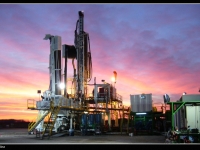"Operation Car Wash" Uncovers Alleged Political Bribery by Petrobras

Paulo Roberto Costa, former head of Petrobras' refining and supply unit, has named dozens of politicians who allegedly took bribes from the Brazilian company. Costa claims that Petrobras paid out three percent of the value of new contracts to the politicians in return for favorable votes for the government.
The Brazilian government currently controls roughly two out of three of Petrobras shares. Although the Rio de Janeiro company is is the largest multinational in South America and generates over $141.2 billion in revenues a year, it is also the world's most indebted oil company with $114 billion in outstanding obligations.
Brazilian federal authorities arrested Costa on March 20 following a money laundering investigation named "Operation Car Wash." In the hope of receiving a lighter sentence, Costa named over 60 politicians whom he says were recipients of Petrobras money between 2002 and 2012.
Last week, O Estado de Sao Paulo newspaper, and Veja, a weekly magazine, published the names of the politicians. They included Edison Lobão; the minister for energy and mines; Renan Calheiros, the Senate president; Henrique Eduardo Alves; president of the lower house of Congress; and Eduardo Campos, a former governor.
The scandal has threatened to undermine Brazilian President Dilma Rousseff's re-election chances when the country goes to the polls on October 5. "I assure you I will take the necessary action," Roussef told reporters." But I will not act based on speculation, I want the details."
"Petrobras is being destroyed through political interference, patronage and corruption," opposition candidate Marina Silva told the media. Silva, who worked closely with Campos, remains untainted by the scandal and is now tipped to win the election, in some part because Campos was killed in a plane accident last month.
The scandal has pitted the two women - who both have claims to radical political backgrounds - against each other. Silva is a committed environmentalist while Roussef - a former urban guerilla who was arrested and tortured by a previous military dictatorship - calls herself a "developmentalist" promoting policies to exploit Brazil's vast natural resources.
This is not the first time this year that Roussef has come under fire over Petrobras. In March O. Estado de S. Paulo revealed that Roussef has personally championed a 2006 deal, under which Petrobras paid $1.2 billion to buy Pasadena Refining Systems Inc. in Texas. This was despite the fact that the same facility had been purchased by a Transcor Astra Group SA, Belgian commodities trader, for just $42 5 million in 2005.
For her part Roussef blamed Nestor Cerveró, a Petrobras executive whom she says wrote a flawed report on the refinery. It appears that Astra took advantage of a special clause in the contract that forced the Brazilian company to pay more than it had expected. The two went to arbitration in the U.S. but Petrobras lost, and was forced to pay an even higher bill.
The company is attempting to stay out of the political brouhaha by deflecting blame on to its employees."It is in the best interests of the company's management to see the completion of all ongoing investigations," Petrobras said in a statement released to the media. "Any irregular acts that may have been committed by a person or group of people, whether or not they are company employees, do not represent the conduct of the Petrobras institution and its workforce."
But Petrobras has been caught in a bribery scandals before. In 2008, company executives were accused of accepting almost a million dollars from Alstom, a French engineering group. The money was allegedly funelled from an Alstom subsidiary in Switzerland to an account in Uruguay in 2002 in order to win a contract to supply turbines worth $550 million dollars at the time.
- 185 Corruption



